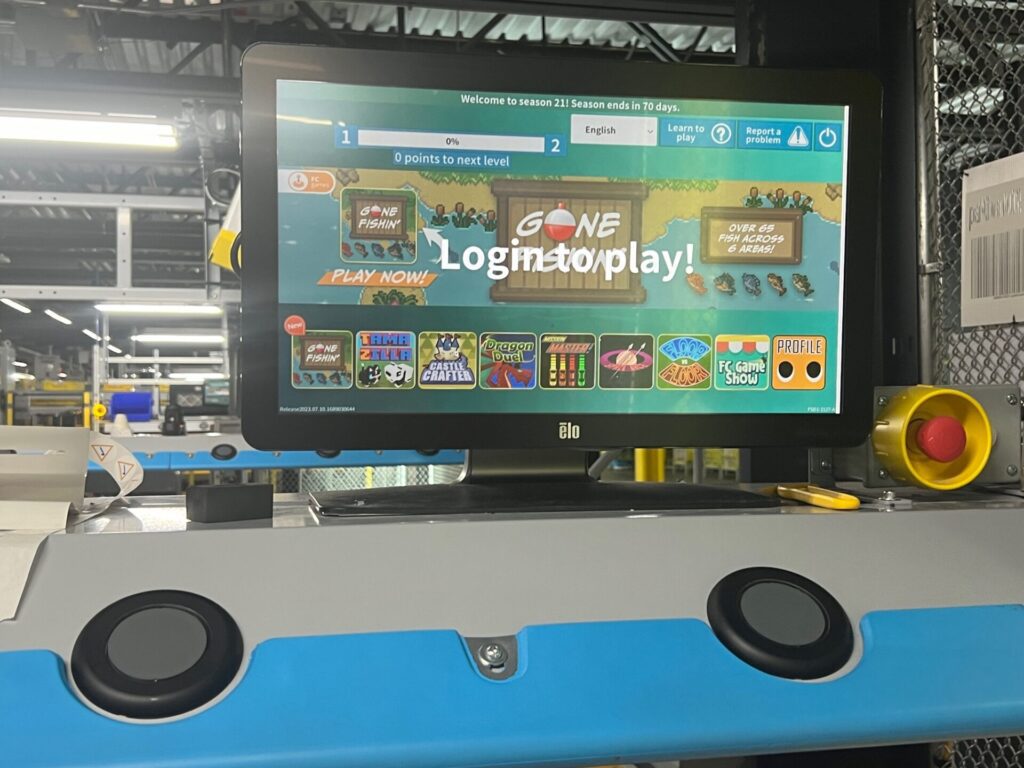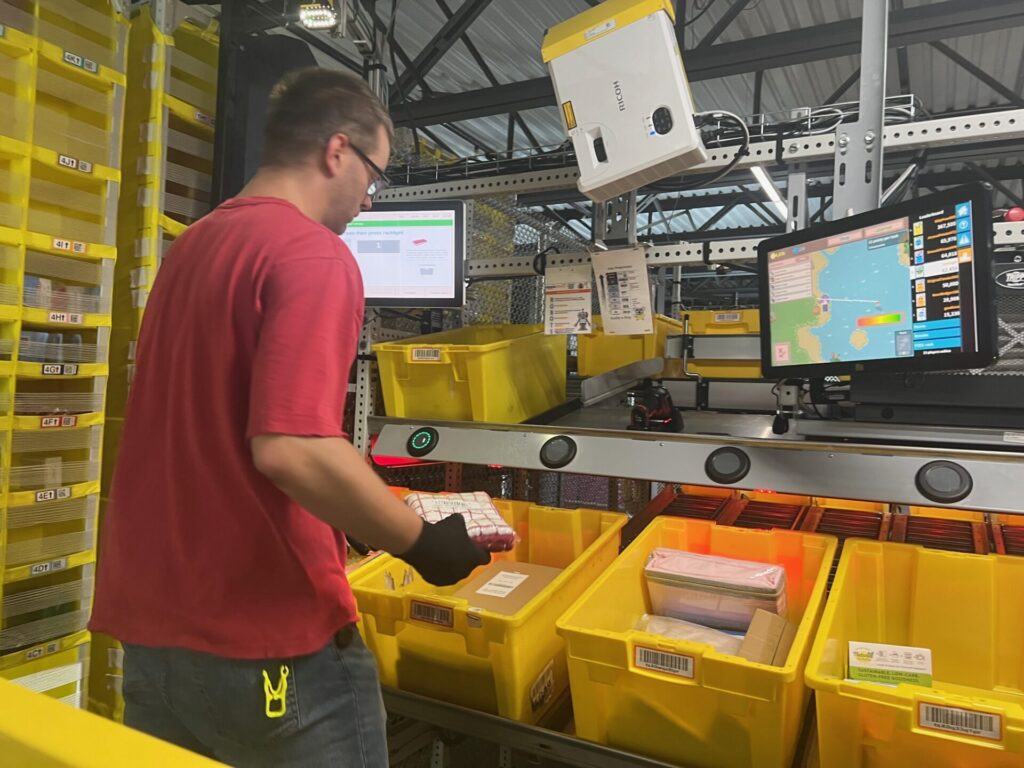Jodi’s Journal: Get ready for Generation Alpha
July 30, 2023
My goddaughter, Ainsley, turned 6 years old last week, an event that has been anticipated for, as she told me, “years.”
Or, as I can vouch for, at least six solid months.
So the milestone event seemed a good excuse for me to remember that while much of our focus is on Gen Z, which is the newest generation to enter to the workforce, Ainsley and her fellow future first-grade classmates are part of what’s being called Generation Alpha — as in what comes after Z if you start the alphabet again but also indicative of being born entirely in a new century.
And if you’re still trying to figure out the best way to sell to, recruit or retain Gen Z, get ready to rethink things all over again.
One of my earliest memories of Ainsley is as she just was learning how to speak. She’d already deduced that if she said “Alexa! Play Baby Shark!” to a nearby connected device, the favorite tune would follow.
I’ve never had a conversation with her that involved just the audio of a phone. It has been all FaceTime followed more recently by some amusing calls via her new Gizmo Watch. Look into a phone or talk into a watch? Sure. Talk into a phone? In her mind, something is off.
Generation Alpha largely is defined as those born after 2010 – the year the iPad debuted – and the oldest become teens this year. That will have implications for retailers looking to reach them as consumers and soon for all of us as employers because hourly jobs await for them in just a couple of years.
It will be interesting to see whether another generation ultimately is identified from 2020 on because the coronavirus pandemic is the sort of generation-defining moment that often separates one from another. Those who remember it are part of one generation; those who don’t become part of the next.
But for now, we have Generation Alpha, an estimated 2 billion people worldwide by 2025, with the greatest numbers of them in India, China and Indonesia.
By next year, they could outnumber baby boomers, and many of them will be living into the next century.
In the U.S., this is the most diverse generation yet – an estimated 47 percent are nonwhite.
It’s predicted that half of Generation Alpha will go on to earn a college degree, according to McCrindle Research, which coined the generation’s name, but – and these two things seem in conflict for now – 65 percent of fourth graders are not proficient in reading and two-thirds are not proficient in math, according to the Annie E. Casey Foundation’s Kids Count Data Book in 2020.
Here’s the real eye-opener: It’s estimated that 65 percent of Generation Alphas will work in jobs that don’t exist today.
Think about that. These aren’t yet-to-be born workers. These are people as old as 13 already here. And about two in three of them ultimately will work in jobs that don’t exist today.
“As the emerging generations begin to consider their career options, there are jobs available in entirely new industries such as nanotechnology, blockchain, cybersecurity, autonomous transport and virtual reality,” the McCrindle report said.
“The jobs of the future will come not only from technological change but also demographic change. The aging population is creating new opportunities, not just in the aged care sector but other related industries. Record birth rates and more affluent parents are creating new child care services and career roles. From cultural diversity to changing family structures, population shifts create new demands and industries.”
By necessity, this will be a generation that actually must become lifelong learners – and not just give lip service to the idea as I fear sometimes happens today. Because they will live longer, they will work longer, and the pace of change will accelerate the need to continually learn new skills.
They must be thoroughly exposed and challenged in STEM-related fields – science, technology, engineering and math –because those fields are where the jobs are, but they can’t neglect more liberal arts fields either, given the complexity of challenges they likely will be asked to solve throughout their lives.
I thought about that last week as I sat down with Southeast Technical College president Bob Griggs at Amazon, where a tuition benefit for employees essentially could cover the cost of a student going to school part time while working and earning a degree.
With Generation Alpha, maybe even sooner, places like Southeast Tech will need to evolve and become places we all might attend in our 40s, 50s or even 60s to learn new skills based on the demands of the workplace.
As consumers, members of Generation Alpha are the children of millennials, and they already are showing they mirror many of their parents’ preferences.
“Millennials have gravitated toward more nostalgic brands,” said Heather Dretsch, assistant professor of marketing, in this piece from North Carolina State University.
“Many millennials want their kids to have the same experiences that they did as children, so they’re emphasizing play with Legos, Hot Wheels, Barbies, Fisher-Price toys and other brands with retro vibes and packaging. Brands that they remember playing with. This nostalgia effect has had a huge impact in the toy category and consumer goods category, and there’s almost a skipping over of Gen Z with these brands.”
Also in keeping with their generational patterns, “millennial parents like to indulge and seek out the best they can afford because they want to feel like they’re being rewarded for what they have earned in their lives. And they want to bestow these things upon their children too,” she said.
“In fact, millennials often offer their Gen Alphas mini-versions of what the grown-ups have. Think about all the luxury play kitchens and ride-on cars that are mini-versions of what the parents have.”
Not surprisingly, Gen Alphas have more access to screens at an increasingly early age. Those 8 to 12 years old average four hours and 44 minutes in front of screens daily, according to creative services and tech firm Wunderman Thompson.
I thought about that last week at Amazon when I noticed a screen in front of one of the “pickers” tasked with pulling orders and putting them in bins.
“Log in to play!” it said.
From there, associates could choose from multiple games – including many tied directly to what they were doing at work – and compete against one another for spots on a leader board.
The associate I was watching had chosen a fishing-themed game that he was playing against 22 others inside the 3 million-square-foot fulfillment center.
The Sioux Falls facility is “one of the few that actually have it and fully utilize it,” he said, adding that the system is “completely optional” and those who are embracing it tend to be his younger employees. Want a young worker to engage on the job? Turn it into a video game.
But, like all generations, this one shouldn’t be stereotyped or subjected to assumptions.
While we’re all shaped by the broader times in which we live, we’re most acutely influenced by those directly interacting with us during those formative years.
To that point, “Generation Alpha need to be equipped with the skills and the competencies that will enable them to thrive in this era of change,” the McCrindle report said.
“How we equip this generation will be different to how it has been done in the past. Generation Alpha don’t need the same authority structures, hierarchies or traditional power approaches because we’re in more collaborative times. Being the most digitally savvy generation ever and as we move to a world with more robotics, interpersonal skills will become more important than ever for Generation Alpha.”
In other words, Alexa, play Baby Shark. And get ready for a lifelong conversation ahead.











